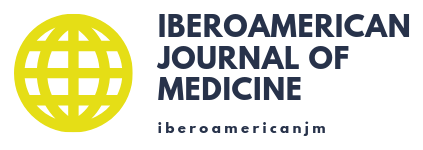Knowledge, attitude and pattern of antibiotic utilization among Libyan University students in Zawia
Hana Smeda, Amera Murghem, Aya Khapoli, Sana Gaunos, Rabab Alahrish, Fathi M. Sherif, Shukri M. Alsharif
Abstract
Introduction: The antimicrobial agents have saved human from several infectious disease. However, bacteria have capability to develop to become resistant to antibiotics and incorrect use of antibiotics is the main determinants of development of antimicrobial resistance which is a public health issue. Attention on medical students and community people should be emphasized by both education and promotion. Thus, this study was aimed to assess the present knowledge, attitude and behavior of Libyan university students regarding antibiotic use and misuse.
Methods: Sample size of 150 students attending faculty of pharmacy of university of Zawia, Libya was participated. The procedure was divided into five groups according to their grades. All the involved participants completed a health questionnaire about their utilization and mal utilization of antibiotics. Data was collected over a period of two months during July and August 1029.
Results: The evaluated data was from 250 students; 132 were females and 21 were males (7.3 : 1.0). 88.0% use antibiotics to cure bacterial infection while 15.3% use it to cure viral infection. 38.0% never use antibiotics to treat respiratory tract infections such as common cold, 34.0% sometimes and 26.0% always. In addition, 61.0% stopped using antibiotic based on physician's instruction while 8.0% when symptoms decreased. Regarding their attitude toward antibiotic misuse, 82.0% agreed that it is necessary to get more education and promotion about pattern of antibiotic use and 73.0% agreed to establish courses on antibiotic rationale use.
Conclusion: Students at medical university of Zawia have a considerable knowledge and a great perspective on antibiotics utilization. However, there is still a need for more additional educational programs on antibiotic utilization and mal utilization targeted university students and community people in Libya.
Keywords
References
1. Azevedo MM, Pinherio C, Yaphe J, Baltazar F. Assessing the impact of the school intervention to promote students’ knowledge and practices on correct antibiotic use. Int J Environ Res Public Health. 2013;10(7):2920-31. doi: 10.3390/ijerph10072920.
2. Allison D, Hughs S. Antibiotic resistance awareness: spreading the word, not the worry. Perspect Public Health. 2015;135(6):284-5. doi: 10.1177/1757913915606664.
3. Khachatourians GG. Agricultural use of antibiotics and the evolution and transfer of antibiotic-resistant bacteria. CMAJ 1998;159(9):1129-36.
4. Al-Azzam SI, AL-Husein BA, Alzoubi F, Masadeh MM, AL-Horani MA. Self-medication with antibiotics in Jordanian population. Int J Occup Med Environ Health. 2007;20(4):373-80. doi: 10.2478/v10001-007-0038-9.
5. André M, Vernby Å, Berg J, Lundborg CS. A survey of public knowledge and awareness related to antibiotic use and resistance in Sweden. J Antimicrob Chemother. 2010;65(6):1292-6. doi: 10.1093/jac/dkq104.
6. Kamala T, Yves K, Bibi B, Jean-Pierre A, Hugo D, Christel Van G, et al. Antibiotic prescribing in DR Congo: a knowledge, attitude and practice survey among medical doctors and students. PloS One. 2013;8(2):e55495. doi: 10.1371/journal.pone.0055495.
7. Senka D, Jagoda S, Blazenka K. Antibiotic resistance mechanism in bacteria: biochemical and genetic aspects. Food Technol. Biotechnol. 2008;46(1):11-21.
8. Richman PB, Garra G, Eskin B, Nashed AH, Cody R. Oral antibiotic use without consulting a physician: a survey of ED patients. Am J Emerg Med. 2001;19(1):57-60. doi: 10.1053/ajem.2001.20035.
9. Ivanovska V, Zdravkovska M, Bosevska G, Angelovska B. Antibiotics for upper respiratory infections: Public knowledge, beliefs and self-medication in
the Republic of Macedonia. Pril (Makedon Akad Nauk Umet Odd Med Nauki). 2013;34(2):59-70.
10. Poole K. Mechanisms of bacterial biocide and antibiotic resistance. J Appl Microbiol. 2002;92S:55-64.
11. Lee CR, Cho IH, Jeong BC, Lee SH. Strategies to minimize antibiotic resistance. Int J Environ Res Public Health. 2013;10(9):4274-305. doi: 10.3390/ijerph10094274.
12. Sherif FM. An evaluation of the prescribing patterns of drugs in Libya. Jam Med J. 2008;8(3):203-6.
13. Atia A. Physician trends of drug prescription in Libya: a pharmacological study. Pharmacophore. 2019;10(3):33-8. doi: 10.1007/s15010-008-8060-9.
14. Umgelter A, Reindl W, Miedaner M, Schmid RM, Huber W. Failure of current Antibiotic first-line regimens and mortality in hospitalized patients with spontaneous bacterial peritonitis. Infection. 2009;37(1): 2-8. doi: 10.1007/s15010-008-8060-9.
15. Ghaieth F, Elhag SRM, Hussien ME, Konozy EH. Antibiotics self-medication among medical and nonmedical students at two prominent Universities in Benghazi city, Libya. J Pharm Bioallied Sci. 2015;7(2):109-15. doi: 10.4103/0975-7406.154432.
16. Shehadeh M, Suaifan G, Darwish RM, Wazaify M, Zaru L, Alja’fari S. Knowledge, attitudes and behavior regarding antibiotics use and misuse among adults in the community of Jordan. A pilot study. Saudi Pharm J. 2012;20(2):125-33. doi: 10.1016/j.jsps.2011.11.005.
17. Ayepola OO, Onile-ere OA, Shodeko OE, Akinsiku FA, Ani PE, Egwari LO. Knowledge, Attitude and Pattern of Antibiotic Usage among Students of a Nigerian University. J Microbiol Infect Diseases. 2019;9(1):10-5. doi: 10.5799/jmid.537133.
18. Ghadeer ARY, Shehadeh SM, Darwish DA, Al-Ijel H, Yousef AM, Darwish RM. A cross-sectional study on knowledge, attitude and behavior related to antibiotic use and resistance among medical and non-medical university students in Jordan. African J Pharmacy Pharmacol. 2012;6(10):763-70. doi: 10.5897/AJPP12.080.
19. Awad A, Eltayeb I, Matowe L, Thalib L. Self-medication with antibiotics and antimalarials in the community of Khartoum State, Sudan. J Pharm Pharm Sci. 2005;8(2):326-31.
20. Napolitano F, Izzo MT, Di Giuseppe G, Angelillo IF. Public knowledge, attitudes, and experience regarding the use of antibiotics in Italy. PLoS One. 2013;8(12):e0084177. doi: 10.1371/journal.pone.0084177.
Submitted date:
04/06/2020
Reviewed date:
04/08/2020
Accepted date:
04/09/2020
Publication date:
04/09/2020

